The Handbook of Counselling Psychology
Pilot Survey Results
1. How many years have you been qualified as a counselling psychologist?
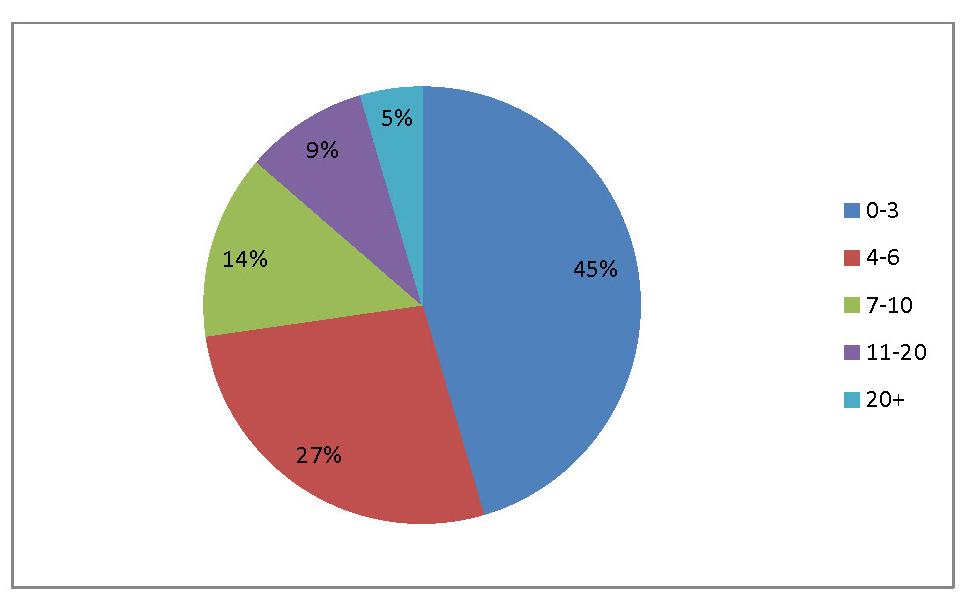
2. Did you qualify on the independent or course route?
Independent route: 20%
Course route: 80%
3. In what settings do you currently work (please tick all that apply)

4. Overall, how easy did you find/are you finding the transition from trainee to qualified counselling psychologist?
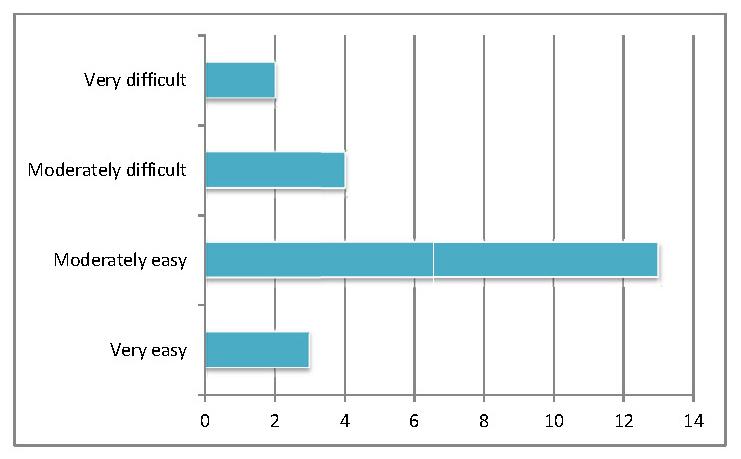
5. What do you see as the important tasks/dilemmas of this transition? (Weighted averages)
1: Fairly unimportant
2: Moderately important
3: Very important
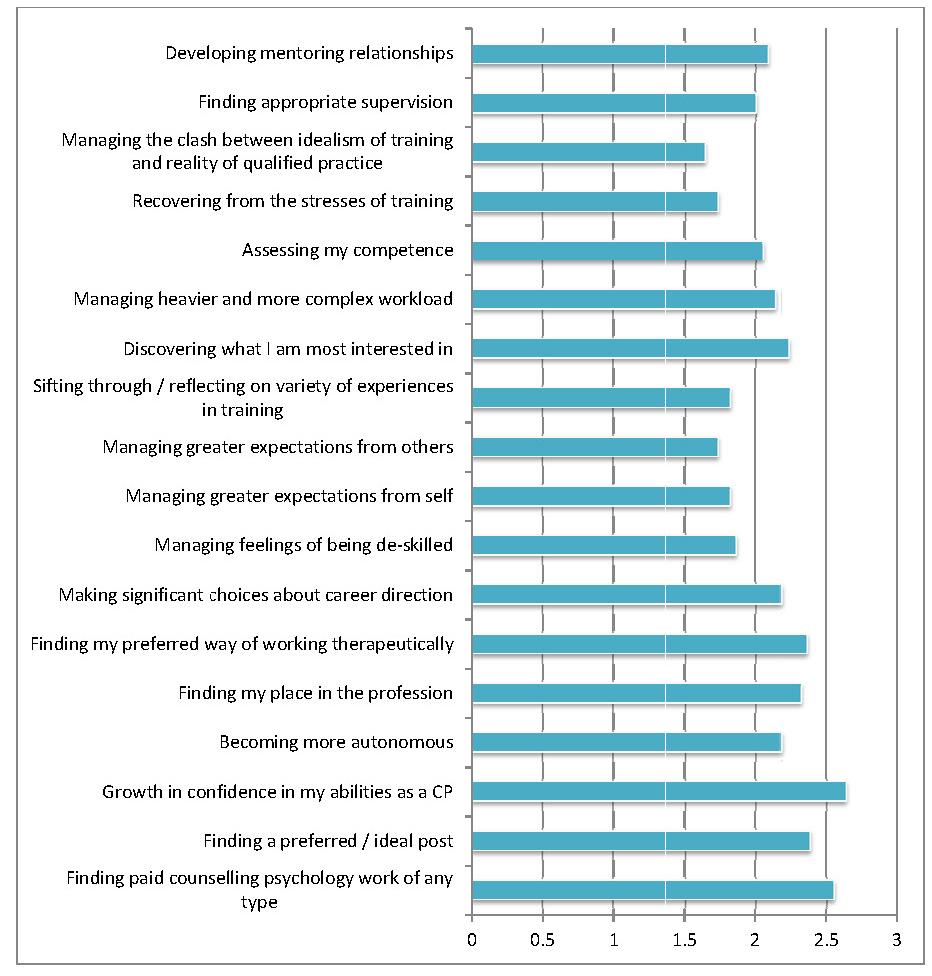

6. To what extent do/did the following factors help you manage this transition? (Weighted average)
0: Not at all
1: To a small degree
2: Moderately
3: Greatly
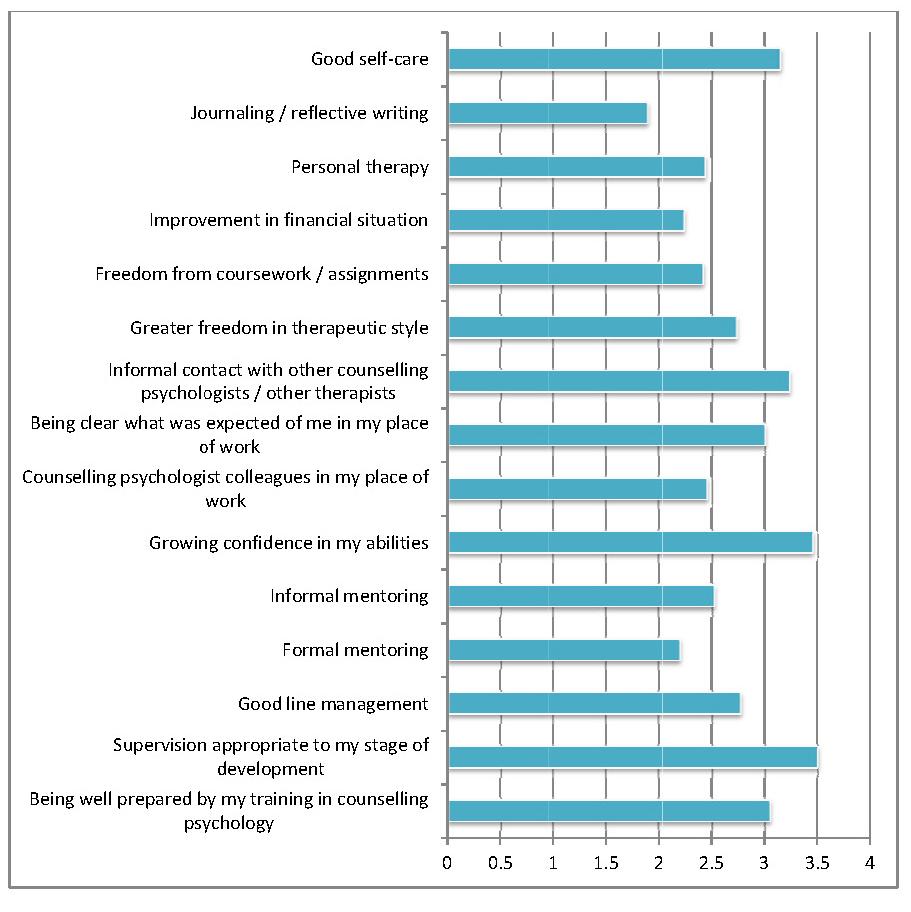
7. To what extent do/did any of the following factors make this transition harder? (Weighted average)
1: Not at all
2: To a small degree
3: Moderately
4: Greatly
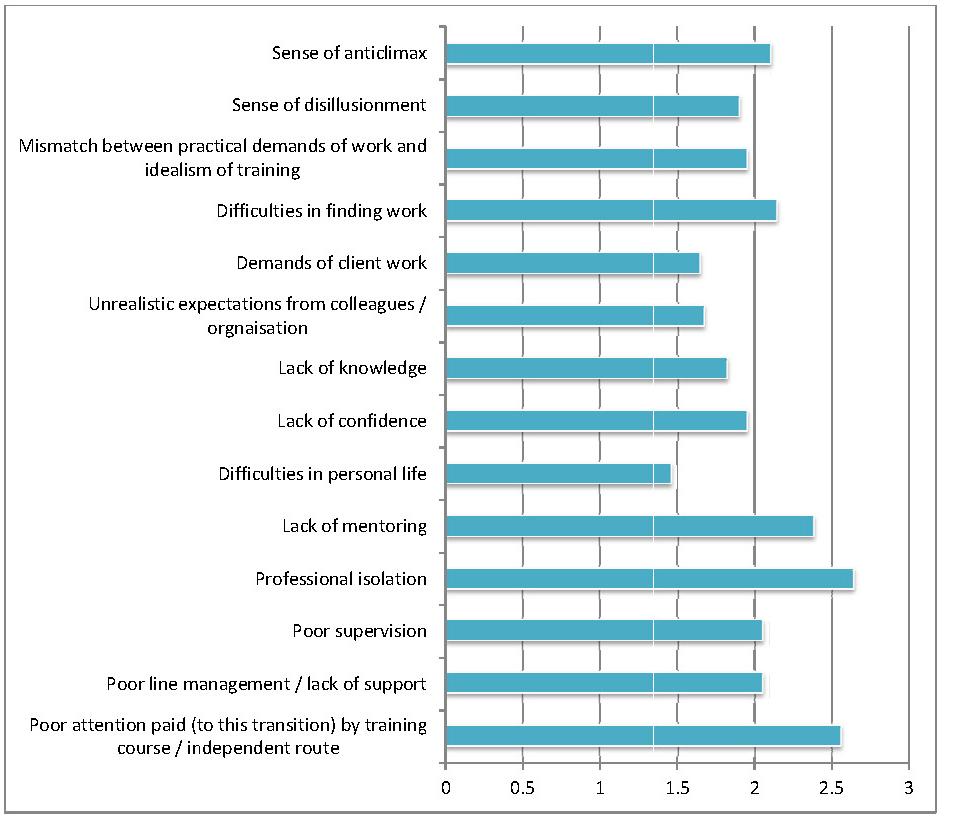
8. What advice would you give to those qualifying as counselling psychologists to help them manage this transition?
(These responses are copied verbatim)
- Training focuses too much on what makes counselling psychologists ‘special’. The hard reality is that the employment marketplace does not want or need ‘special’. It needs hard-working, competent, innovative, flexible practitioners who deliver cost-effective client outcomes. Full stop. Doctoral level CoPs are ‘over-qualified’ for the majority of available employment in our field and may be disappointed not to be pulling the Band 8+ salaries they expected. Professional training is less relevant than what you can actually do – and how you do it – when you get to work. I’d hire an experienced MA-level counsellor over an inexperienced D-level CoP in my service any day.
- Get out there & talk to peers, those just above & try to get a mentor (s).
- To view training as the beginning of the process. To think about how being a psychologist is who you are, not your job title.
- Talk to someone who is successful.
- Make sure first job is somewhere where they understand the transition and can support your continued development and encourage confidence and development of professional identity.
- To trust in themselves and in the profession they’ve chosen, to remain passionate, patient and persistent, and most importantly to not let fear become an obstacle in WHO they want to become.
- Try and establish placement in your preferred organisation and spend more time in it than just seeing clients 1:1. There is a lot more to our work than perhaps what is experienced in a private organisation as a trainee.
- Finding employment and being able to access supportive management is key.
- Focus your placements on your interests.
- Find a good mentor as well as supervisor and have contact with other counselling psychologists ... preferably more experienced.
- Affiliate with other counselling psychologists, it can be very isolating not knowing any.
- Keep in touch with your training cohort. Try and develop a supervision or mentoring relationship with other counselling psychologists in your area.
- Be positive. Develop a niche. Get support from people who have been successful. And when applying for jobs, always make contact with the recruiting officer informally before applying.
- Stay reflective and curious, don’t think that once you’re qualified you’re ready/know everything – there is a settling in time where it is OK not to know. Don’t be afraid to ask, learn from those around you who you respect.
- Network efficiently and effectively; become current with policy-maker and policy-driver direction; believe in self.
- Consolidation of skills first and foremost with good supervision. It takes time to develop. 10 years probably to become really proficient. You know enough to be safe, not much more than that. Don’t forget the relationship as the absolute cornerstone of any work and develop your knowledge and understanding of the forms that it can take. This is much more important than technique.
- Connect with and make the most of your relationships with fellow counselling psychologists. Take up offers of mentoring relationships.
- Stay in touch with fellow trainees, e.g. form a peer supervision group or professional development group; get involved with the Division, attend conferences.
9. What, if anything, could the profession do better to help people manage this transition?
(These responses are coped verbatim)
- Set up online locally based mentor buddy system – informal style once per month type check in.
- Get a mentorship scheme going. With CoPs who work in a range of sectors who are willing to give their time to talk to trainees and newly-qualifieds about what work is like, how the workplace is changing rapidly and how to present oneself well to get a job. Also have an “employment transitions” strand at the conference each year where there are workshops and talks on these topics – especially the “business” of psychological service provision.
- Discuss it in training!
- Offer careers support, more employed work as trainees, better training courses with links to employment.
- Perhaps, additional formal acknowledgement through the training courses regarding the realities accompanying this transition.
- Be more clear in their position and advocate it more widely.
- Support the profession more fully i.e. at a national level.
- Mentoring.
- Provide mentoring for newly qualified professionals.
- Mentoring groups/schemes. Having CoP recognised as applied Psychology and not being dismissed in job applications!
- Greater mentoring opportunities. We often work in isolation from other counselling psychologists as we are fairly few in number.
- Offer mentoring from experienced Counselling Psychologists.
- I think placement experiences during training could be more rigorous/structured/supervised – I have come across some newly qualified CoPs that didn’t measure up at interview when placed against newly qualified clinical trainees (sadly). Mentoring very useful, informal usually the best source of this.
- A brief period of “apprenticeship” may help.
- Recognise it. Put it into training courses re. the end of training and how things work in the real world. Encourage mentoring if needs be. Sort out the inequalities and limit the impact of prejudices of others within related disciplines from affecting placement and job opportunities.
- Put on meetings and opportunities for networking and support.
- Establish mentoring networks.
